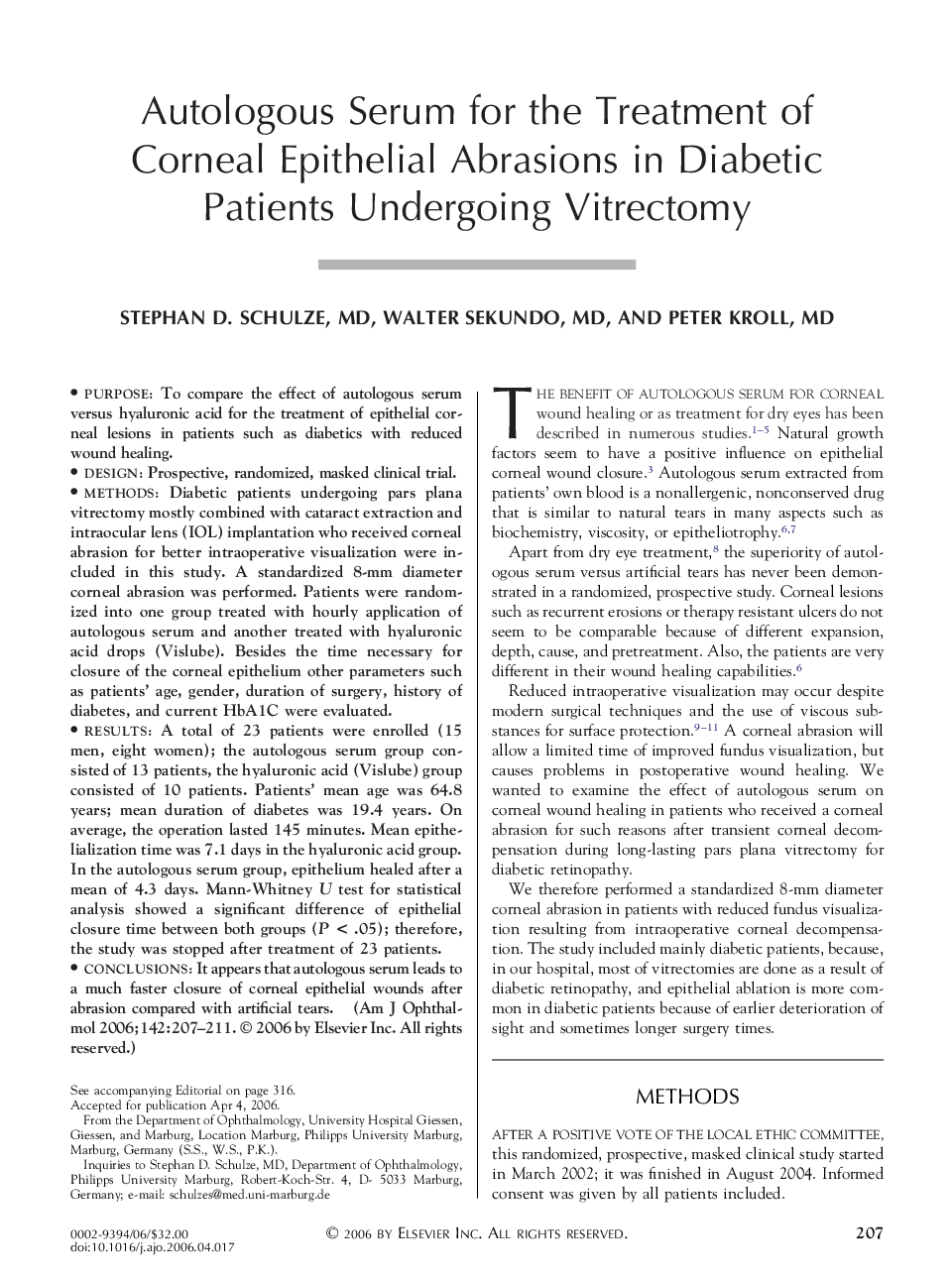| Article ID | Journal | Published Year | Pages | File Type |
|---|---|---|---|---|
| 4005808 | American Journal of Ophthalmology | 2006 | 5 Pages |
PurposeTo compare the effect of autologous serum versus hyaluronic acid for the treatment of epithelial corneal lesions in patients such as diabetics with reduced wound healing.DesignProspective, randomized, masked clinical trial.MethodsDiabetic patients undergoing pars plana vitrectomy mostly combined with cataract extraction and intraocular lens (IOL) implantation who received corneal abrasion for better intraoperative visualization were included in this study. A standardized 8-mm diameter corneal abrasion was performed. Patients were randomized into one group treated with hourly application of autologous serum and another treated with hyaluronic acid drops (Vislube). Besides the time necessary for closure of the corneal epithelium other parameters such as patients’ age, gender, duration of surgery, history of diabetes, and current HbA1C were evaluated.ResultsA total of 23 patients were enrolled (15 men, eight women); the autologous serum group consisted of 13 patients, the hyaluronic acid (Vislube) group consisted of 10 patients. Patients’ mean age was 64.8 years; mean duration of diabetes was 19.4 years. On average, the operation lasted 145 minutes. Mean epithelialization time was 7.1 days in the hyaluronic acid group. In the autologous serum group, epithelium healed after a mean of 4.3 days. Mann-Whitney U test for statistical analysis showed a significant difference of epithelial closure time between both groups (P < .05); therefore, the study was stopped after treatment of 23 patients.ConclusionsIt appears that autologous serum leads to a much faster closure of corneal epithelial wounds after abrasion compared with artificial tears.
